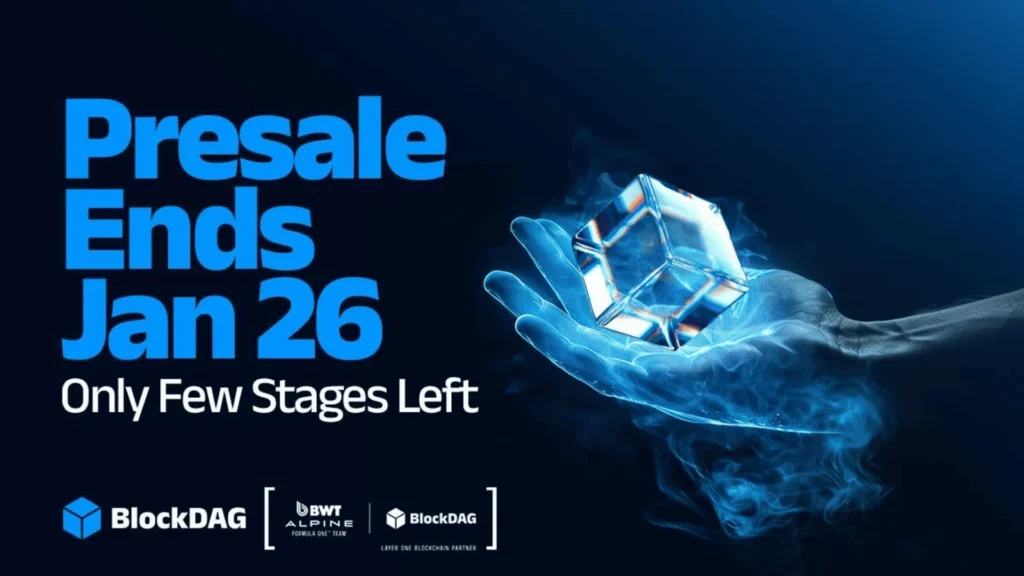Do Kwon trades guilty plea in $40b fraud scheme for a shot at freedom
Do Kwon stood in federal court wearing an orange jumpsuit, a far cry from his days as the brash founder of Terraform Labs. The once hailed blockchain visionary, facing life behind bars, took a deal that could see him out in 12 years. But for victims of Terra’s crash, even that may feel like too little, too late.
- Do Kwon pleaded guilty to conspiracy and wire fraud linked to the $40 billion TerraUSD and Luna collapse.
- Facing up to 25 years, his plea deal includes a recommended maximum sentence of 12 years if he complies.
- Kwon agreed to forfeit over $19 million and faces potential restitution as part of his sentencing.
According to an August 12 report by Inner City Press, Do Kwon admitted guilt to two serious charges, including conspiracy and wire fraud, tied to the $40 billion collapse of his TerraUSD and Luna projects.
The 33-year-old entrepreneur confirmed his understanding of the charges in a subdued exchange with Judge Paul Engelmayer, acknowledging he could face up to 25 years in prison. His plea agreement, however, offers a glimmer of hope: if he complies with prosecutors, the government will recommend no more than 12 years.
Do Kwon’s mechanics of a $40 billion deception
Do Kwon’s guilty plea doesn’t just close a case. It exposes the deliberate fraud behind one of crypto’s most catastrophic failures. Prosecutors laid bare how Kwon, when TerraUSD lost its dollar peg in May 2021, falsely claimed the “Terra Protocol” algorithm had stabilized the coin.
In reality, prosecutors said he orchestrated a covert bailout, directing a high-frequency trading firm to pump millions into buy orders, artificially inflating the price. This manufactured recovery lured investors back in, propping up Luna’s valuation to a staggering $50 billion by 2022, until the entire scheme imploded.
The deception went beyond market manipulation. Kwon’s indictment reveals he misled users of Terra’s ecosystem, including Chai payments and Mirror Protocol, by concealing the stablecoin’s fragility.
His admission in court, also reported by CNBC, stripped away any remaining doubt:
“I made false and misleading statements about why it regained its peg by failing to disclose a trading firm’s role in restoring that peg,” Kwon said. “What I did was wrong.” The statement, rare in its bluntness, underscores the calculated nature of the fraud.
The price of accountability
Kwon’s legal reckoning spans multiple fronts. Under the plea deal, he forfeits over $19 million and faces potential restitution orders, a fraction of the $4.55 billion settlement he and Terraform reached with the SEC earlier this year, which included an $80 million personal fine and a lifetime crypto ban.
Yet the true cost is symbolic: his case signals that even the most influential figures in decentralized finance are not immune to consequences.
The timing is pivotal. As regulators globally tighten crypto oversight, Kwon’s sentencing in December could establish a benchmark for prosecuting fraud in an industry still rife with opacity.
South Korea, where he faces separate charges, may yet demand its own pound of flesh. But for the thousands of retail investors who trusted Terra’s promises, the question lingers: Will 12 years, or even 25, be enough to balance the scales?
Disclaimer: The content of this article solely reflects the author's opinion and does not represent the platform in any capacity. This article is not intended to serve as a reference for making investment decisions.
You may also like
Metaplanet’s Gerovich, Bitmine’s Lee drum up corporate crypto holdings
US penalties are having a significant impact on Russia
Avalanche Breaks Trendline Near $13.7, Solana Nears a Decision Point, But BlockDAG’s $0.001 Price Window Is Stealing the Spotlight

Zcash Faces Weekend Challenges with Price Pressures
